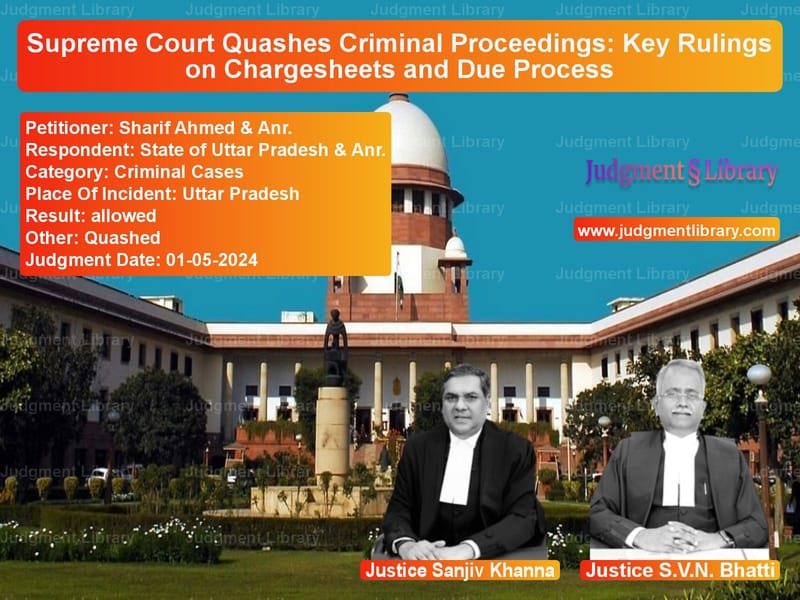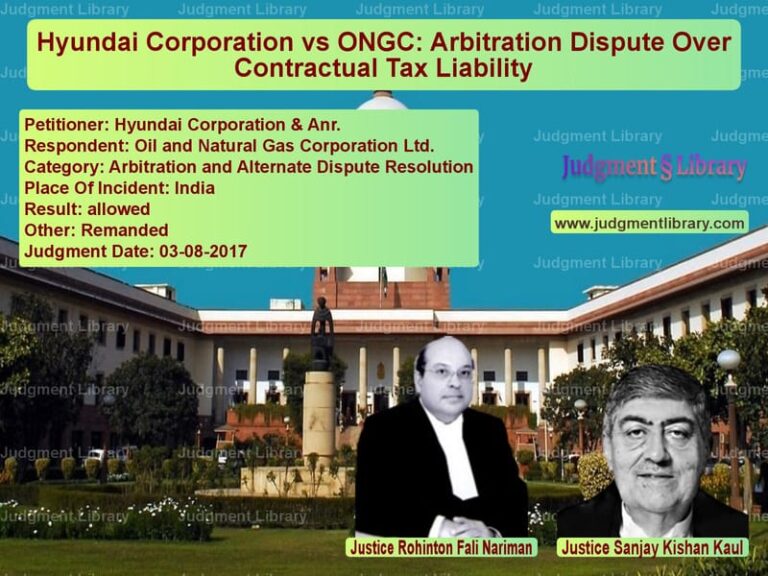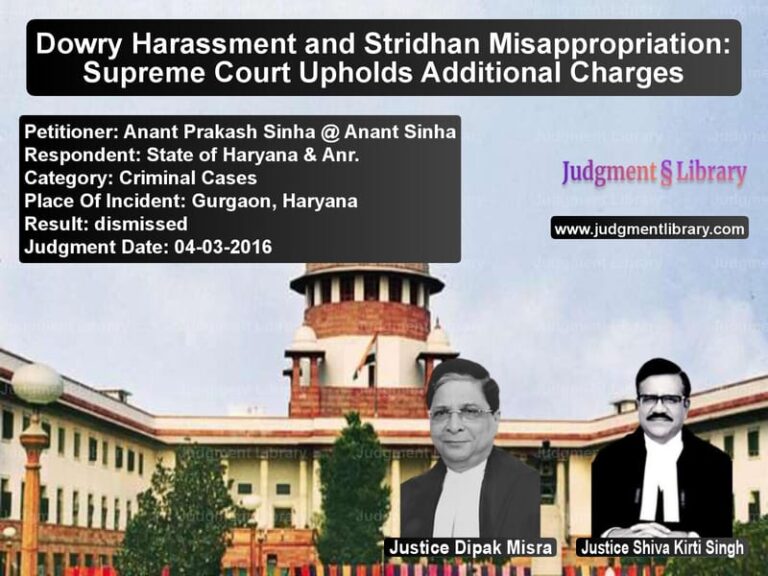Supreme Court Quashes Criminal Proceedings: Key Rulings on Chargesheets and Due Process
The case of Sharif Ahmed & Anr. vs. State of Uttar Pradesh & Anr. is a landmark decision in which the Supreme Court of India quashed criminal proceedings against the appellants. The case dealt with procedural lapses in filing chargesheets, the necessity of substantiated allegations in criminal cases, and the scope of judicial oversight in preventing misuse of the criminal justice system.
Background of the Case
The case involved multiple appeals challenging the validity of chargesheets filed by the police. The appellants contended that the chargesheets failed to meet the statutory requirements under Section 173(2) of the Code of Criminal Procedure (CrPC) and were primarily a reproduction of the complaints without supporting evidence. The Supreme Court divided the judgment into two parts: first, dealing with legal issues concerning chargesheets, and second, evaluating the specific facts of the individual cases.
Legal Issues Considered
The Supreme Court addressed key legal questions, including:
- What constitutes a valid chargesheet under Section 173(2) of the CrPC?
- Can a chargesheet be filed without independent investigation beyond the initial complaint?
- Does a defective chargesheet warrant the quashing of criminal proceedings?
- What are the obligations of the police while submitting chargesheets?
Arguments by the Appellants
The appellants argued that:
- The chargesheets merely replicated the FIRs without substantive investigation.
- The police failed to provide independent evidence supporting the allegations.
- The chargesheets did not comply with statutory requirements, making them legally untenable.
- The criminal cases were initiated as a means of harassment rather than genuine law enforcement.
Arguments by the Respondents (State of Uttar Pradesh)
The State defended the chargesheets, stating that:
- The police had followed standard investigative procedures before filing the chargesheets.
- The magistrate was within his jurisdiction to take cognizance based on the chargesheets.
- Minor procedural lapses in drafting chargesheets do not automatically invalidate criminal proceedings.
- The accused could challenge the sufficiency of evidence during trial rather than seeking quashing at the pre-trial stage.
Supreme Court’s Judgment
The Supreme Court quashed the criminal proceedings against the appellants, ruling that:
“A chargesheet is not a mere formality but an essential document containing the material evidence collected by the investigating officer. A failure to include necessary details and supporting evidence renders the chargesheet incomplete, which cannot be the basis for summoning the accused.”
The Court made several critical observations:
- Defective Chargesheets: The chargesheets in question were found to be insufficient, as they lacked independent corroboration beyond the complainant’s statement.
- Judicial Oversight: Courts must ensure that chargesheets provide substantive grounds for prosecution before taking cognizance.
- Legal Consequences: The Court held that defective chargesheets could lead to the quashing of criminal proceedings, protecting individuals from undue harassment.
Impact of the Judgment
This ruling has significant implications for criminal procedure in India:
- Higher Standards for Chargesheets: Investigating agencies must ensure that chargesheets contain evidence beyond mere allegations.
- Strengthened Judicial Scrutiny: Courts are encouraged to critically examine chargesheets before proceeding with trials.
- Protection Against Malicious Prosecution: The judgment sets a precedent for individuals wrongfully implicated in criminal cases due to inadequate police investigations.
Conclusion
The Supreme Court’s decision in Sharif Ahmed & Anr. vs. State of Uttar Pradesh reinforces the principle that criminal prosecutions must be based on thorough investigations rather than mere allegations. By quashing defective chargesheets, the Court has emphasized the necessity of due process, ensuring that legal proceedings serve the cause of justice rather than being tools of harassment.
Petitioner Name: Sharif Ahmed & Anr..Respondent Name: State of Uttar Pradesh & Anr..Judgment By: Justice Sanjiv Khanna, Justice S.V.N. Bhatti.Place Of Incident: Uttar Pradesh.Judgment Date: 01-05-2024.
Don’t miss out on the full details! Download the complete judgment in PDF format below and gain valuable insights instantly!
Download Judgment: sharif-ahmed-&-anr.-vs-state-of-uttar-prade-supreme-court-of-india-judgment-dated-01-05-2024.pdf
Directly Download Judgment: Directly download this Judgment
See all petitions in Fraud and Forgery
See all petitions in Judgment by Sanjiv Khanna
See all petitions in Judgment by S.V.N. Bhatti
See all petitions in allowed
See all petitions in Quashed
See all petitions in supreme court of India judgments May 2024
See all petitions in 2024 judgments
See all posts in Criminal Cases Category
See all allowed petitions in Criminal Cases Category
See all Dismissed petitions in Criminal Cases Category
See all partially allowed petitions in Criminal Cases Category







